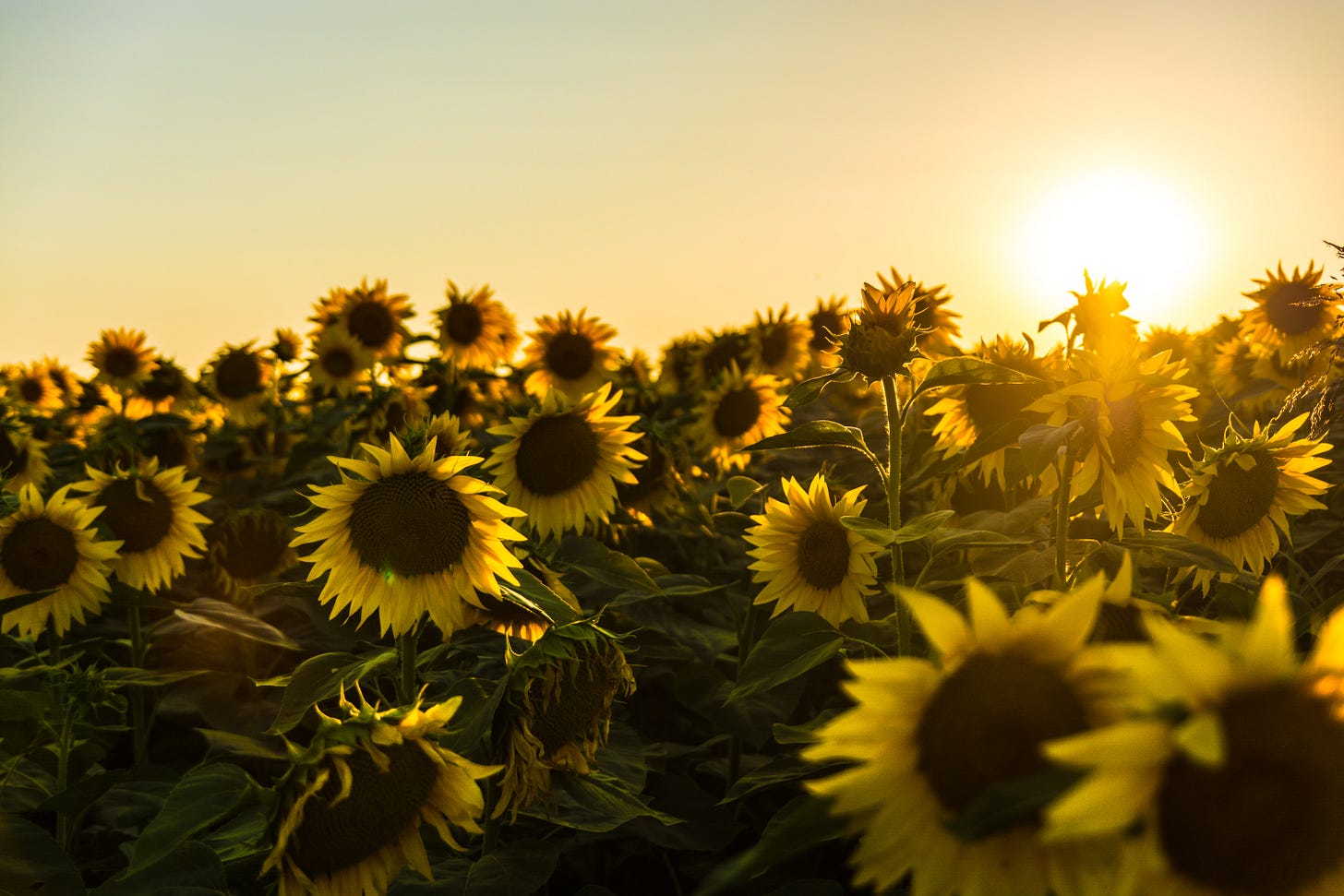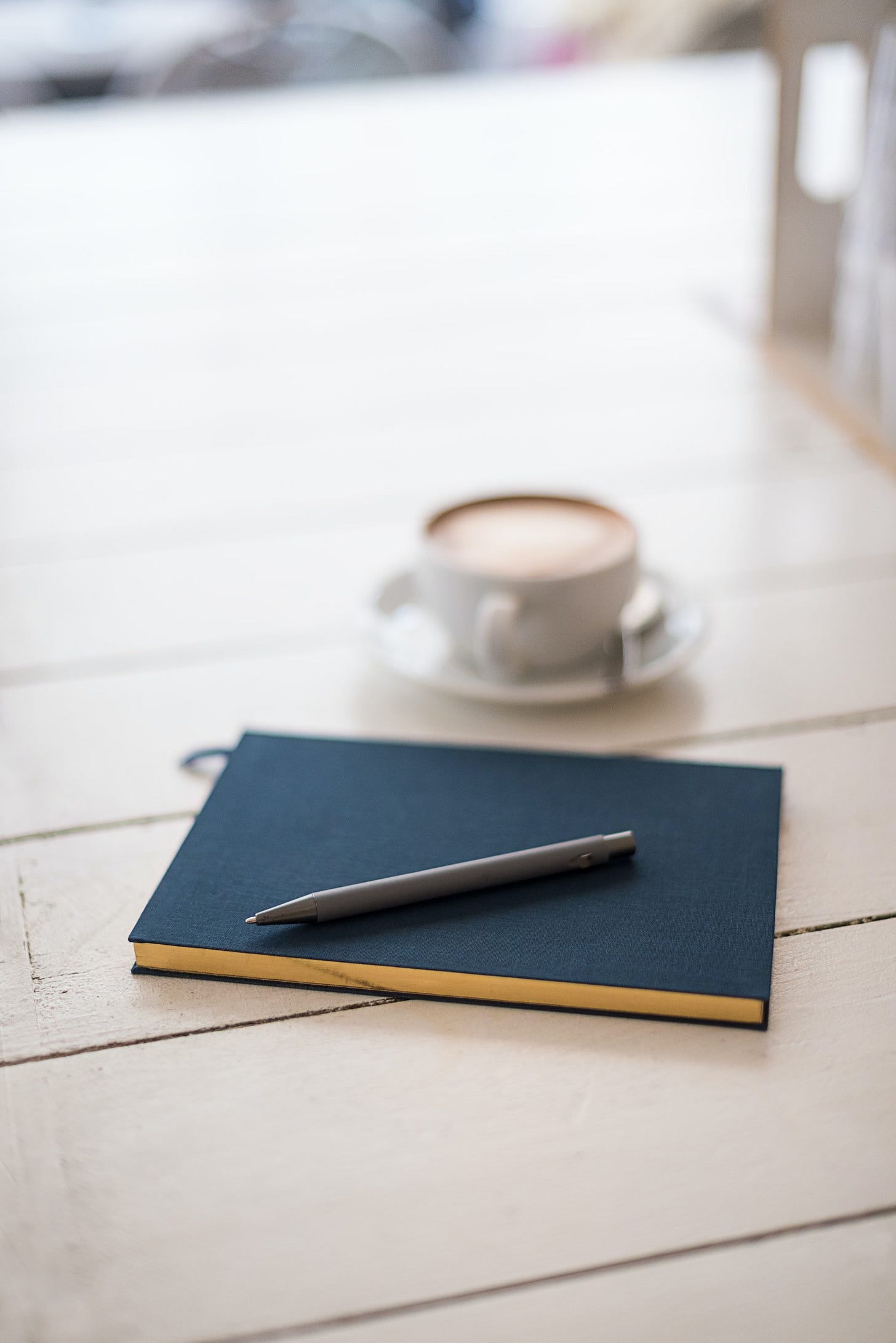Victim, Hero, Learner?
A storytelling exercise
I'm in the middle of two busy weeks of travel wrapping up summer. I'm sharing a piece I wrote a few years ago.
I love this question. It cuts to the core. It's a small and deep shift that can change how we move through life if we can make it.
Are you a Victim, a Hero, or a Learner?
This question is illuminating and perhaps humbling. It offers a chance to see life differently. Maybe it will even help you approach your life and the things that happen with a new perspective.
I found this question/exercise in the book 8 Habits of Love by Ed Bacon. It's a question, challenge, and practice from a woman named Betty Sue Flowers.
Are you a victim, a hero, or a learner?
Here is how it works. Tell or write a brief autobiographical sketch of your life (or an event in your life) from three different perspectives. Think about your life or event from a victim's perspective, then as the hero, then as a learner.
Bacon breaks it down in this way, "Those are three very different stories with three very different energies, and three very different outcomes. A victim feels the need to be defended, vindicated, or avenged. A hero needs justification, ego promotion, or validation. And a learner? A learner seeks illumination, correction, and direction."
Do you view yourself primarily as a victim? Do your stories revolve around how you have been wronged and all the things that have been done to you? Do you seek people to defend your cause and/or tell you, "you are right, you have been wronged, I can't believe all the awful, horrible, no good things that always happen to you!"
Do you view yourself as the hero? Do the stories you tell about your life constantly have you sweeping in and righting all the wrongs? Are you looking for people to say, 'Wow, you did amazing, you really saved the day!"
Do you see yourself as a learner? Are you seeking to understand life through repeated patterns and humble reflection? When you talk to people, are you seeking to understand what happened, why it happened, and how you can include that event into the growth arch of your life?
Bacon goes on, "To use a powerful phrase of Archbishop Tutu's, the victim and hero mindsets want only to perpetuate the "safe sameness"-the predictable and familiar. This is a closed mindset."
Safe-sameness is a concept to consider and be challenged by. Safe-sameness keeps us trapped in places that perhaps we should move past. Same-safeness is rooted in fear. We can't learn or grow when fear is the primary motivator.
Just last night, I was walking in my neighborhood, and someone that I know, not well, but we always talk on the sidelines of kids sports events, saw me, stopped his HUGE, jacked-up truck, and basically said, "I'm stuck in the "safe-sameness" of my faith, and it's not working, in fact, it's killing me, I know your faith journey has changed, how did you take those scary steps into the abyss? And if I do that, will I be sucked under, or is there life outside of this life-sucking tension?" (So, in other words, a totally light-hearted conversation with a random neighbor on my evening stroll.)
Same-safeness is a powerful force. Where is the same-safeness in your life? What is the fear of making a change keeping you from?
I like this question and exercise because we all have blind spots that keep us stuck in "same-safeness." This simple but profound question can help us see the stories we tell ourselves and others and the voice we use to tell that story. This question can reveal the lens and defense mechanisms we commonly use.
When I tried these questions, the story's victim and hero versions had a lot of "I" (that ego-driven voice). When I thought about the same event as a learner, the voice and energy of the story were more humble, more open, more grace-filled. There was less proving and more reflection. There was more space for others to join me and less rationalizing and trying to "prove" my rightness or the "wrong done to me." As a learner, there was less judging of others and more grace-filled eyes towards the struggles and humanness of those who were part of my story.
Victim, hero, or learner, the choice is yours.
Choose an event in your life and try the victim, hero, learner exercise. Tell or write the story from a victim mindset, a hero mindset, and a learner mindset.
What did you learn? What feels like the most common default that you usually use? What is your invitation for growth?

Recently Read
Fiction:
Malibu Rising by Taylor Jenkins Reid
I heard this book described as "frothy." I'm not sure what that means, but it was good! I have been patiently waiting to read this new release, and just as we started on a road trip last week, it was my turn on the hold list from the library. It's the story of the children of an 80's rock star. The story takes place over 24 hours and a lifetime. It's well written, face-paced, fun, and the characters are so relatable and likable (mostly.)
“She had to choose what, of the things she inherited from the people who came before her, she wanted to bring forward. And what, of the past, she wanted to leave behind.”
― Taylor Jenkins Reid, Malibu Rising
The Seven-Husbands of Evenly Hugo by Taylor Jenkins Reid
It was a Taylor Jenkins Reid week of reading for me! I didn't like this one as much. About a third of the way through the book, I realized that I really didn't like any of the characters. There were hits of a big plot turn through the whole book, and that kept me reading. I wanted to know what the big secret was. Daisy Jones & the Six, The Seven Husbands of Evelyn Hugo, and Malibu Rising are loosely related books. There are camos of a few characters in each book. It's kind of fun to see how they pop up. Evelyn Hugo is my least favorite of the trio (not a bad book, just not my favorite) Mailbu and Daisy Jones are probably equal. All of Taylor Jenkins Reid’s books are fun, frothy (whatever that means), light summer reads.
Non-Fiction
Stillness is the Key by Ryan Holiday
This was my other road trip read. I started reading it because it was the first book in my Kindle queue. I ended up really enjoying it. I love books that weave history, science, philosophy, and life lessons together. This book really hit all the marks for me.
"We have to get better at thinking, deliberately and intentionally, about the big questions. On the complicated things. On understanding what's really going on with a person, or a situation, or with life itself."
― Ryan Holiday, Stillness is the Key
(I try and pay attention to words or phrases that stand out to me in my reading and listening. There is a spiritual practice called Florliledgium that collects short, interesting pieces {words that “sparkle” up} and put them together. This is kind of like that. Watching for things that sparkle. Gathering them and seeing how they work together and what message, mantra, or new idea might arise.)
A Practice:
Read slowly.
Notice if a word or phrase stands out to you.
How do the words make you feel?
Is there an invitation?
(I’m sharing in italics the lines that stand out to me in these passages. Maybe it’s the same, or maybe it’s different, there is much food for thought in each of these passages)
“Journaling is a way to ask tough questions: Where am I standing in my own way? What’s the smallest step I can take toward a big thing today? Why am I so worked up about this? What blessings can I count right now? Why do I care so much about impressing people? What is the harder choice I’m avoiding? Do I rule my fears, or do they rule me? How will today’s difficulties reveal my character?”
― Ryan Holiday, Stillness is the Key
“In today’s America, we tend to think of healing as something binary: either we’re broken or we’re healed from that brokenness. But that’s not how healing operates, and it’s almost never how human growth works. More often, healing and growth take place on a continuum, with innumerable points between utter brokenness and total health.”
― Resmaa Menakem, My Grandmother's Hands: Racialized Trauma and the Pathway to Mending Our Hearts and Bodies
“No one longs for what he or she already has, and yet the accumulated insight of those wise about the spiritual life suggests that the reason so many of us cannot see the red X that marks the spot is because we are standing on it. The treasure we seek requires no lengthy expedition, no expensive equipment, no superior aptitude or special company. All we lack is the willingness to imagine that we already have everything we need. The only thing missing is our consent to be where we are.”
― Barbara Brown Taylor, An Altar in the World: A Geography of Faith
“The most significant gifts are the ones most easily overlooked. Small, everyday blessings: woods, health, music, laughter, memories, books, family, friends, second chances, warm fireplaces, and all the footprints scattered throughout our days.”
― Sue Monk Kidd
“it is convenient, particularly convenient, to tell stories of the past lives—especially our own past lives—that create a strong distinction between good and evil. The genealogy of Matthew’s Gospel shows us that what may have once been considered scandalous is, with the greater wisdom of hindsight, demonstrated to have been motivated by courage.”
― Pádraig Ó Tuama, In the Shelter: Finding a Home in the World







